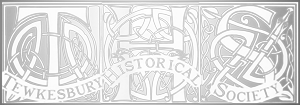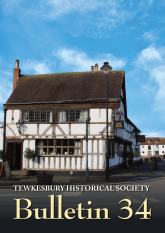The Orange Pig - Once a Pub
to Expand
A difficulty in following the history of pubs is that their names change, and sometimes transfer from one property to another. This happened with 122 High Street, which until recently was the Orange Pig, a much-loved children’s clothes shop, but never its name whilst it was a pub!
It isn’t certain when No. 122 gained its beerhouse licence, but that was all it ever had. It never sold spirits; just beer, probably brewed in the brewhouse in Scotts Alley, behind it. The Scott in the alley’s name was Joseph, an ironmonger, who died in 1831. His shop was at 122, the front house. What it became after his death is unknown; the first reference to the beerhouse in in 1859, when Joseph Cossens was selling it, as an established pub called the ‘Quart Pot’, together with a smith’s shop and two cottages in the alley. Until 1837 the Quart Pot name had been used for a much more prestigious Inn in Church Street, next to the Methodist Church.
Joseph Cossens was a wine merchant and a partner in the distillery on what is now the Black Bear’s garden. The property took until 1864 to sell. It was now described as the ‘former Quart Pot’, and occupied by Henry Butt as a house. Daniel Chandler, a maltster, bought it for £160. It returned to being a beerhouse, renamed the Brewer’s Arms, with Samuel Hodges as landlord. Hodges also took over the workshop in the alley and installed a kiln for firing clay pipes, to the great annoyance of the neighbours. He kept the Brewers Arms until 1876, when he went bankrupt and his furniture was sold off. The pub was taken over by Henry Jenkins, and after a quiet five years transferred to Samuel Evans.
Samuel Evans’ tenure was short and tempestuous. The pub became the haunt of ‘ladies of ill repute’. Sophia Hawker and Eliza Hampton were convicted of passing a counterfeit sovereign and a few months later Evans was fined £5 for allowing girls of bad character to habitually use his premises. This was the beginning of the end. The pub was up for sale again in October 1882, now in the occupation of Walter Heath (who was a confectioner with a shop at 130 High Street). It’s role as a beerhouse was ended. Its licence was withdrawn in 1883 because it had again become a private house. The new owner was Charles Dowswell, a retired hairdresser. Its short life as a pub had ended.



Comments